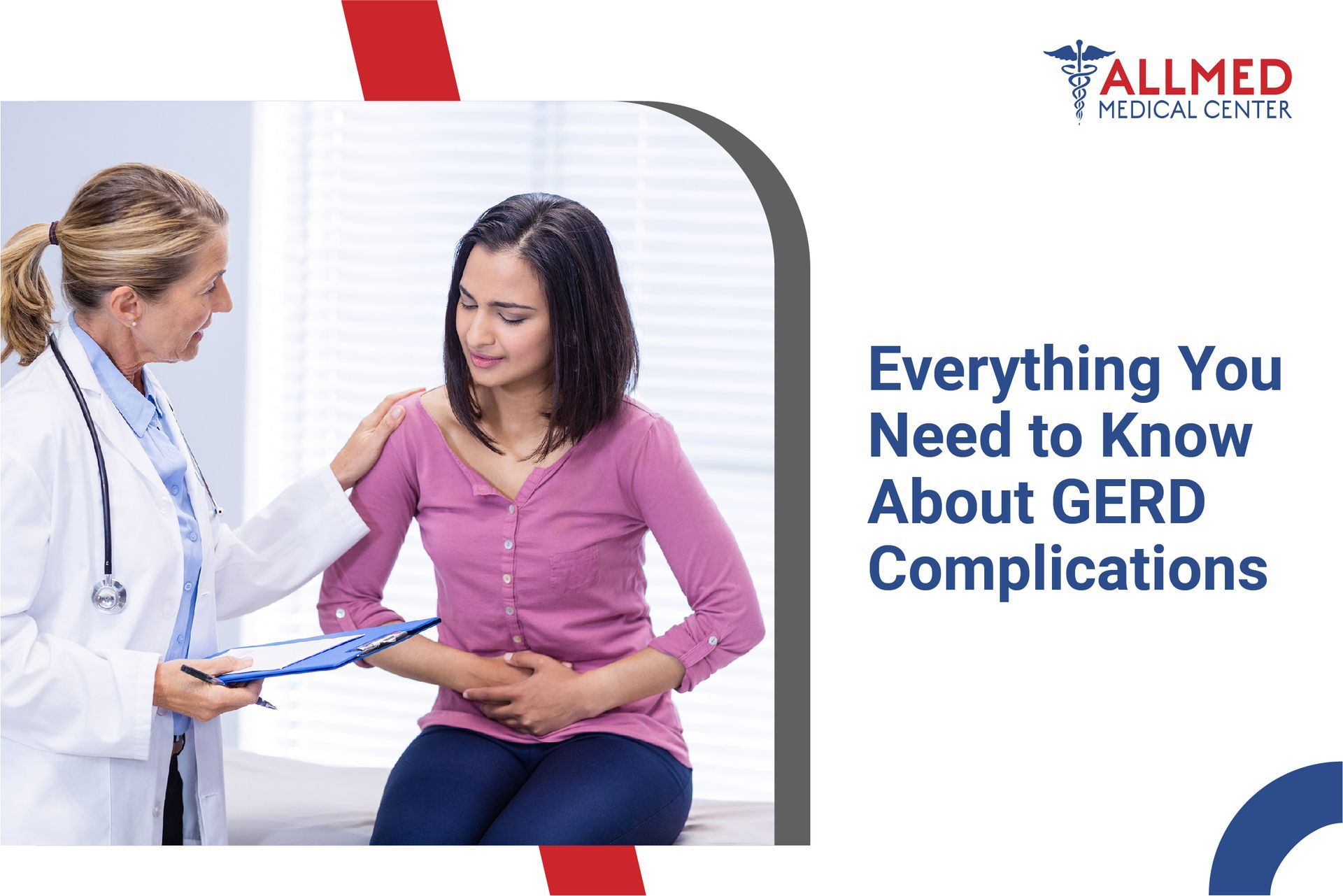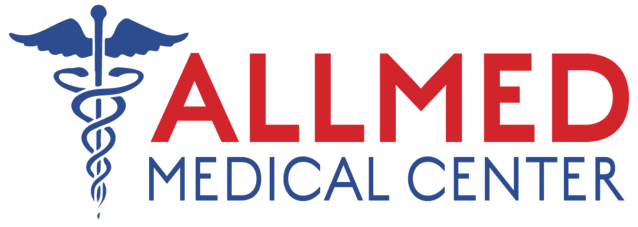Everything You Need to Know About GERD Complications

Having Gastroesophageal Reflux Disease (GERD) can be uncomfortable and annoying. Nevertheless, understanding the most common GERD symptoms and treatment can help you manage the condition and improve your life.
This article will tell you all about GERD and its complications, from what they are to how to prevent and treat them. We aim to give you the information and support you need to deal with it and protect your long-term health.
What is GERD?
Gastroesophageal Reflux Disease (GERD) is also called acid reflux. If you are wondering what is, "GERD meaning,” it is a condition in which stomach acid and digestive juices flow back into the esophagus.
This happens when the lower esophageal sphincter, a muscle at the bottom of the esophagus, doesn't close properly. This lets stomach acid
flow back into the esophagus.
What Can Cause GERD?
When you swallow, a muscle valve called the lower esophageal sphincter (LES) opens to let food into your stomach. Then it closes to keep stomach contents from coming back up.
This valve's weakness or improper relaxation is the
main cause of GERD. When the muscles in the esophageal sphincter weaken,
Hiatal hernias, a common risk factor of GERD, can occur. A Haital Hernia is an upper gastric pouch that protrudes through the diaphragm, causing regurgitation of food into the mouth and backflow of stomach acid into the esophagus. This is more common in individuals 50 and older who are obese and/or smoke. Surgery can be required to correct a hiatal hernia.
The following are other causes of GERD:
- Fatty foods
- Mints
- Chocolates
- Alcohol
- Coffee
- Tea
- The nicotine from cigarettes or chewing tobacco
- Changes in hormones during pregnancy can also weaken the oesophageal sphincter and LES for a short time
- Obesity can cause GERD because the pressure of extra weight on your stomach can "overpower" the LES and let acid reflux happen
What Are the Symptoms of GERD?
Some of the most common signs of acid reflux are the following:
1. Heartburn
Acid reflux is when stomach acid streams back into the esophagus. Heartburn is the feeling of acid reflux. A mild burning sensation in the middle of the chest
often happens after a meal or when lying down.
2. Regurgitation
Regurgitation is when food
returns from the esophagus or stomach without feeling sick or having strong abdominal contractions. Most people describe this symptom as having a sour taste in their mouth or feeling like fluid is moving up and down in their chest.
3. Dysphagia
Dysphagia is a medical term for trouble or pain swallowing food or liquid. The symptoms of dysphagia are soreness or discomfort when swallowing, making it feel like food is
getting stuck in the throat. It can also make you choke or cough while eating, making you more likely to aspirate when food or liquid enters the lungs instead of the stomach.
4. Nausea and Throwing Up
Patients who suffer from GERD can feel nauseous or vomit when they have difficulty swallowing, coughing, or belching. However, vomiting and nausea are not-so-typical acid reflux symptoms. Though they can occur in some individuals with severe or long-term GERD.
5. Hoarseness and Sore Throat
When stomach acid gets on the vocal cords, it
can cause a lot of swelling. If this keeps happening, a person can end up with several throat problems that are hard to deal with. Hoarseness is one example.
How to Treat GERD?
Lifestyle changes and nonprescription medicines are
likely your doctor's first recommendations. Your doctor can prescribe medicine and further testing if you don't feel better in a few weeks.
1. Over-the-counter drugs that no longer need a prescription
- Acid-neutralizing antacids
- Calcium carbonates antacids like Mylanta and Rolaids
- Acid-blocking and esophagus-healing proton pump inhibitors
- Acid-reducing drugs like cimetidine, famotidine, and nizatidine
2. GERD prescription drugs
- Proton pump inhibitors that need a prescription, including esomeprazole, lansoprazole, and omeprazole.
- Prescribed medicines that could cause mild side effects like low vitamin B-12 or magnesium levels.
- Prescription-strength famotidine and nizatidine.
3. Surgery and other procedures
- Fundoplication.
- Transoral Incisionless Fundoplication (TIF)
- LINX device.
What Are the GERD Complications?
If
left untreated or inadequately managed, GERD can result in numerous complications. The following GERD problems could arise:
1. Erosive Esophagitis
GERD can lead to erosive esophagitis when stomach acid reflux damages the esophagus membrane. Erosive esophagitis occurs when excessive reflux of acid and pepsin causes necrosis of the mucosal surface layers of the esophagus, leading to erosions and ulcers.
2. Barrett's Esophagus
The lining of the esophagus alters in Barrett's esophagus, resembling the small intestine lining than the esophageal lining. This happens near the junction of the esophagus and the stomach.
Persistent inflammation by GERD is the primary cause of Barrett's esophagus. Barrett's esophagus is more common in individuals who have had GERD for
a long time or who developed it when they were young.
It's worth noting that the frequency or severity of GERD symptoms, such as heartburn, has no bearing on the probability of developing Barrett's esophagus.
3. Esophageal Strictures
When ulcerative esophagitis heals, it
can cause peptic strictures to form. This phase involves the laying down of collagen. Over time, the collagen fibers contract, making the esophageal lumen smaller.
Most of the time, these restrictions are short and join the gastroesophageal junction. An endoscopy can also show areas of reflux esophagitis in the area.
4. Dental Issues
No matter how bad it is, GERD can make you at risk for tooth erosion from stomach acid that flows freely. The appearance of teeth
eroded by GERD is identical to those eroded by bulimia. Also, the most commonly impacted is the area that faces the tongue.
5. Increased Risk of Pneumonia
A
study found that acid reflux should be one of the most likely causes of pneumonia in people who keep getting it, even if there is no evidence of aspiration. It is crucial to discuss treatment options with your doctor if you have GERD symptoms to avoid these side effects.
Long-term acid reflux is notorious for causing a chronic cough that produces a negative pulmonary workup.
Also, when gastroesophageal reflux disease (GERD) is severe, complications like aspiration pneumonia and chemical pneumonitis that lead to interstitial lung disease are more likely (ILD).
Get the Correct GERD Diagnosis and Expert Treatment!
If you have problems with GERD, look up "Sacramento medical center" or "Sacramento doctors," which will lead you to
AllMed Medical Center. Our seasoned medical professionals will assist you in creating a customized treatment plan that meets your needs.
Call us immediately at 1-833-255-6332, so we can provide the correct diagnosis and help with how to treat it. You can also choose the clinic you want to visit from this
list.
AllMed Medical CentersServing
Greater Sacramento
Allmed Medical Center | All Rights Reserved.









